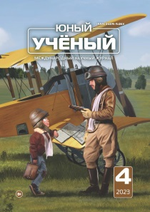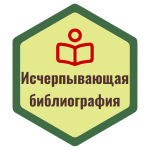In this article, the author considers the study of foreign languages, in this case English, effective through theatrical art. Extracurricular work, the creation of theater clubs in schools develops communication skills when learning a foreign language. What do extracurricular lessons give? What problems do theater clubs help students overcome when learning English? All these issues are discussed in this article.
Keywords: theater, scripts, game, pronunciation.
В данной статье автор рассматривает изучение иностранных языков, в данном случае английский язык, эффективным через театральное искусство. Внеклассная работа, создание в школах театральных кружков развивает коммуникативные навыки при изучении иностранного языка. Что дают внеклассные уроки? Какие проблемы помогают театральные кружки преодолеть учащимся при изучении английского языка? Все эти вопросы рассматриваются в данной статье.
Ключевые слова: театр, сценарии, игра, произношение.
For many years, teachers and psychologists have been tirelessly looking for new effective methods of learning foreign languages. Important factors in learning a foreign language are pleasure, communication, and physical activity.
So they support the idea that Theatre school club is one of the most effective methods in learning English. As you know, one of the most important and at the same time complex types of speech activity is communication. By participating in the performance, students learn to listen and understand each other. The scene teaches clear speech, correctly formed grammatically, intentionally and phonetically. I would like to attract your attention to such phenomenon. The role of the student changes, he becomes an actor, and the teacher becomes a director. The tense atmosphere disappears, not the teacher corrects the grades, but the director helps the actor learn to speak and speak English correctly.
We can see that previously passive students who believe that mastering English is an impossible task for them radically change their attitude to language learning. I agree that during the preparation and conduct of classes and rehearsals, we get into a friendly atmosphere of relaxed communication and each of us tries to contribute to the common cause.
The main challenge of my work is to display how school theatre club help learning of culture, traditions of English speaking countries, the language we learn. Besides there is no doubt that participation improves in school theatre club English speaking and pronunciation. I suppose that even pupils who hate to learn foreign languages can change their minds and start love it. They get used to stand aside the speaking process: they prepare their homework in English, get their marks and they stand indifferent to English. But taking part in drama play they have to learn by heart their roles, to control their pronunciation and emotions.
Now I want to describe how we carry out diagnostics of theatrical activities in our school theatre club. Each participant prepares a miniature in English. After the mini performance the participant is randomly given several tickets with different situations. This task is invented in order to find out how well the participants are improvising.
It’s also important how well a person performs in front of audience. That’s why we gather all participants for watching each other’s performances. After collecting the results of each student we make chart that displays the acting skills, the level of knowing language and the creativity of the speaker.
We have developed special conditions to enter in school theatre club.
Entrance diagnostics on acting skills.
The study, which was conducted in September 2019, involved 17 people from the first year group. According to the diagnostic results, seven children had a high level of abilities, seven people had an average level and three children showed low results. Almost the entire group has poorly expressed plastic and speech data, their development should be paid the closest attention.
Intermediate diagnostics .
The study was conducted with children aged 13 years. The analysis of the survey showed that many children show interest in various areas of life, without giving preference to any one area.
All of our club members are special and individual.
The sociological survey was attended by pupils of different classes, aged 10–16 years. We chose pupils of this age category because we believe that at this step of life, pupils have a craving for the unknown, desire to try something new. Our questionnaire, polls can help to show a big meaning of theatre clubs for improving English.
The survey has shown that majority of pupils want to take part in the English theatre club with pleasure and joy:
90 %- pupils of 10–12 years
60 %- pupils of 14–16 years
And only 10 % of pupils have negative attitude to school theatre club.
But one of the main goals of the project is the creation of my own collection of scenarios. We hope these scenarios will help English teachers to solve problems of research dramatic materials.
There is the list of my scenarios:
– “Father Christmas”
– “Lesson in kindness”
– “Agakhanum”
– “Bonfire Night”
– “Christmas jerboa”
– “Story of the first thanksgiving”
– “Boston tea party” [5; 6; 7]
Conclusion
So, why do our high school students, after difficult lessons in physics, mathematics, biology, come to theatre rehearsals in English with pleasure?
… Firstly, in the theatre you can broaden your horizons, enrich your knowledge of English and American history and culture.
Secondly , the theatre develops diligence, the ability to organize and plan your time.
Thirdly, theatre is informative, interesting and fun. The theatre is developing the correct cultural and moral ideals and guidelines.
What do theater classes give?
- Creativity. All children are talented. All children are spontaneous. Their «open-mindedness», the ability to see the world with wide-open eyes, often allows them to see what adults do not see. It is easy to find the creative potential of a child, and the results can be very impressive!
- Imagination. Classes in the theater studio develop imagination, attention, concentration, memory and conscious reaction. Theater classes for schoolchildren and teenagers perfectly develop the ability to control themselves, improvise and manage their emotions in different life situations.
- Getting rid of fears. Theatre classes are a game. And the game is the most effective way to get rid of children’s fears. Classes in a theatre club are unique: developing imagination they make a person more courageous.
- Speech development. Children learn to build correct phrases, get rid of parasitic words. They learn to put words into sentences beautifully, expressively, meaningfully and clearly.
- Friendship and communication. Thanks to acting classes, children learn to quickly find a common language with their peers, find new friends and become more open communication. The development of communication skills is the most important component in learning a foreign language. Theater classes will not only get rid of barriers in communication, but also teach how to interact in a team, feel and support others.
- After all, the theatre is a house of witty quotes and sayings. Students enrich their active vocabulary/
Conducted research has shown that we have to support the idea of opening school theatre clubs in every school because theatre rise interest of children and it`s very important step in learning language. We can show that theatre classes in the school are a very important step in learning of foreign language.
References:
- Бодоньи М. А. Путешествие в мир английского. 2018 г.
- Конышева А. В. Игровой метод в обучении иностранному языку.- СПб.: КАРО, Мн.: Издательство «Четыре четверти», 2008.–192 с.
- Степанов В. А. «Театр на английском языке» 2018 г.
- «Мультимедиа в образовании» http://www.ido.edu.ru/open/multimedia
- https://infourok.ru/scenarij-pes-dlya-shkolnogo-teatr-6363233.html
- https://multiurok.ru/files/scenarij-pes-dlya-shkolnogo-teatr-6363233.html
- https://s30hsv.api.siteobr.ru/administrator/subpartitions?58900










